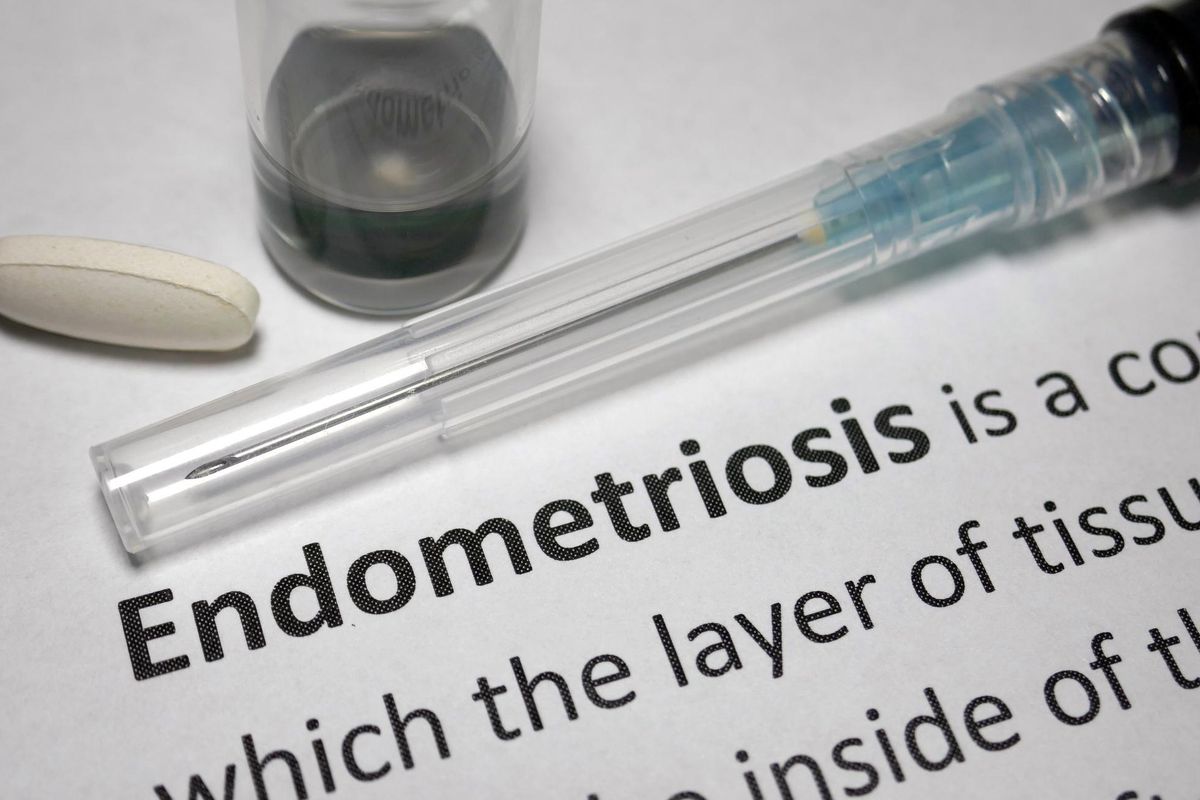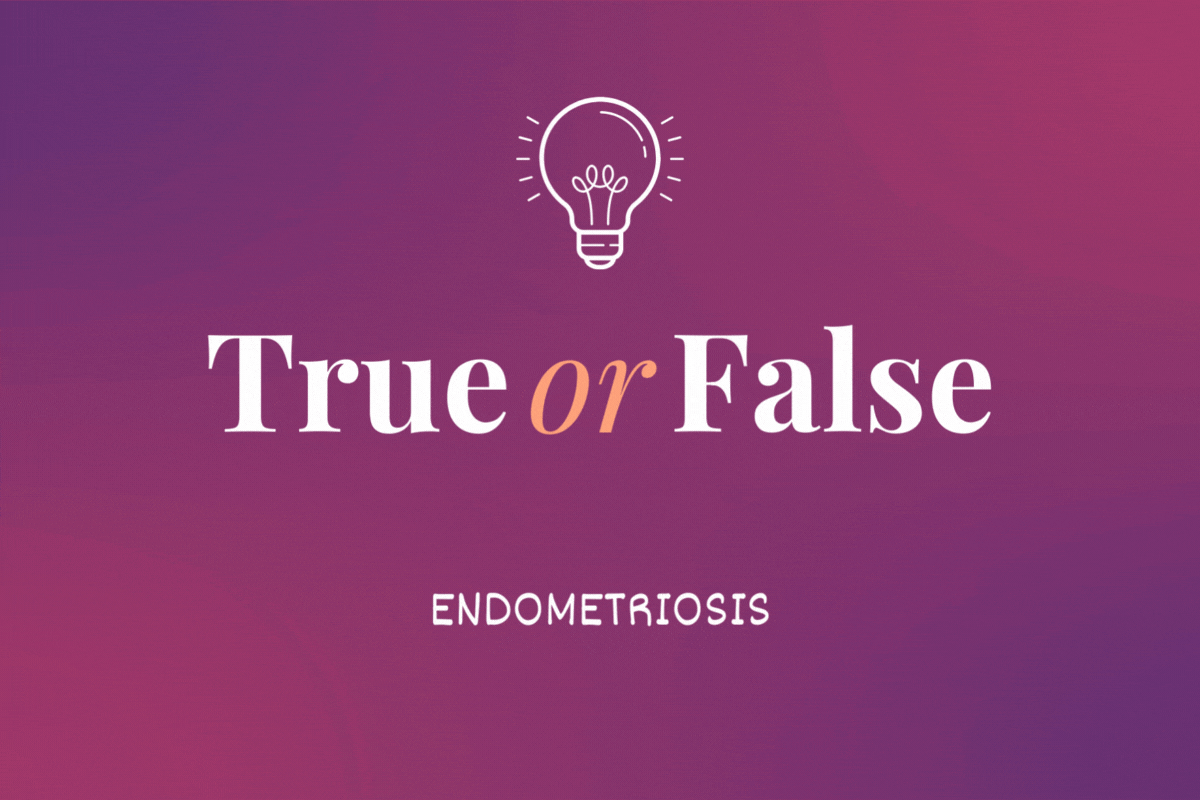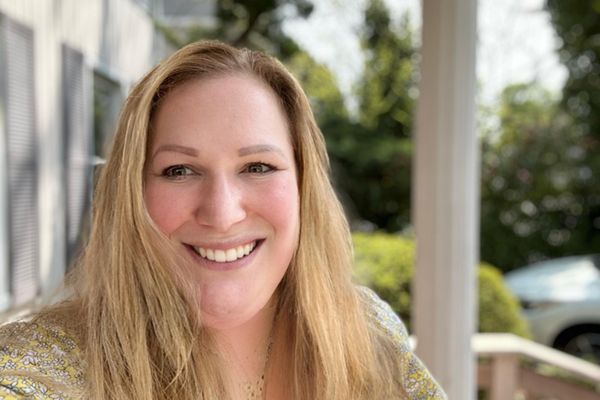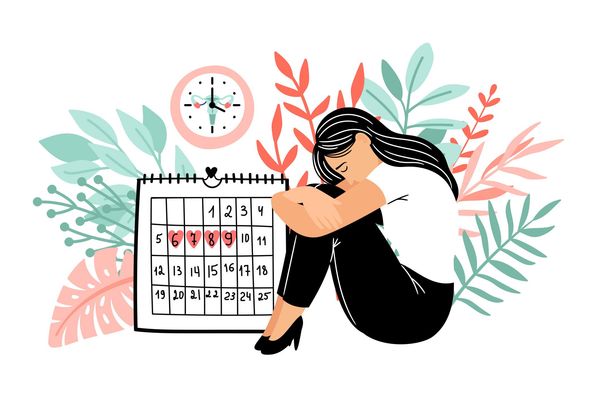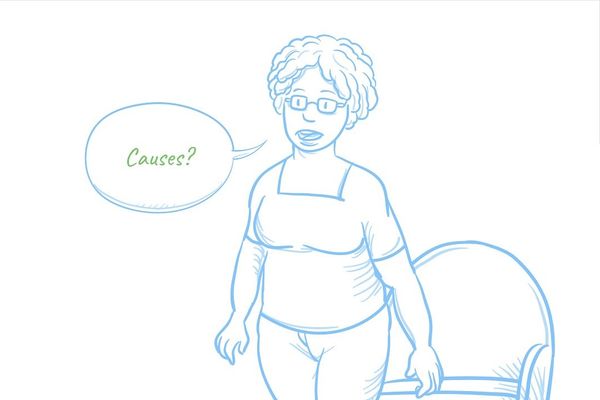March is Endometriosis Awareness Month.
Endometriosis is a painful condition that affects more than 11% of women ages 15-44. HealthyWomen reached out to Robyn Faye, M.D., an OB-GYN with the Abington Primary Women's Healthcare Group and member of HealthyWomen's Women's Health Advisory Council, to get the basic facts.
What is endometriosis?
Endometriosis is a pelvic pain condition that occurs when tissue similar to the tissue that lines the uterus, known as endometrial tissue, becomes implanted outside the uterus and creates growths known as endometrial implants. The most common location of endometriosis is the ovaries, but it can also be found anywhere in the body, including on the fallopian tubes, behind the uterus, on the bowels or bladder, and in the peritoneum, uterosacral ligaments and rectouterine pouch (known as rectovaginal endometriosis). A small percentage of endometriosis cases affect the appendix.
What are the symptoms?
Symptoms may include chronic pain; reduced fertility; abnormal periods; painful menstrual cramps, known as dysmenorrhea, and painful sex.
You may also experience fatigue, diarrhea, constipation, bloating or nausea, especially during menstrual periods.
How is endometriosis diagnosed?
Endometriosis shares symptoms with many other conditions, so it can take a while to get a diagnosis. In fact, it generally takes 7-12 years from the onset of symptoms to a diagnosis. In most cases, symptoms eventually lead to a diagnosis, but around 20%-25% of women may be asymptomatic and are only diagnosed during a pelvic exam or ultrasound. Sometimes a diagnosis is made upon sight during a cesarean section, and a definitive diagnosis can be made with a laparoscopy, a procedure where a surgeon uses a small scope to look for endometrial tissue outside the uterus or on the uterus and other pelvic organs.
What are the risk factors for endometriosis?
If you started your period before age 11, have a menstrual cycle that's shorter than 27 days or a heavy menstrual flow that is longer than a week, you are at higher risk for endometriosis. Additionally, there is some evidence that shows women are at greater risk of developing the condition if a close family member (mother, sister, aunt or cousin) has it. Additionally, research suggests that women with endometriosis are more likely to have a height greater than 68 inches and to have a lower BMI.
Are certain groups more likely to have endometriosis?
White women are more likely to be diagnosed with endometriosis than Black women and Asian women. Those who have not given birth are also more likely to have the condition.
What are the treatment options for endometriosis?
The first line of treatment is painkillers, such as acetaminophen or nonsteroidal anti-inflammatory drugs (NSAIDS), and hormonal birth control or progestin alone. Next comes long-term hormone therapy, which can reduce pain and slow the growth of endometrial implants. Surgery can also be performed to remove endometrial implants, which can reduce pain, but the implants can grow back. Laparoscopic surgery is considered the gold standard when it comes to surgical treatment for endometriosis.
Other surgical procedures include cutting pelvic nerves to reduce pain. If endometriosis worsens, an oophorectomy — a procedure that removes the ovaries — or a hysterectomy may be performed: Both procedures have also been shown to minimize or eliminate pain associated with endometriosis.
What other health conditions are related to endometriosis or can develop as a result of endometriosis?
Associated conditions include:
- fibromyalgia
- interstitial cystitis, a chronic bladder condition
- TMJ, a condition that causes the jaw to lock
- inflammatory bowel disease
- migraine
Endometriosis may also be associated with an increased risk of getting certain cancers, including:
- ovarian cancer
- endometrial cancer, a type of cancer that starts in the uterus
- non-Hodgkin's lymphoma, a cancer that starts in the body's lymphatic system
- melanoma, a type of skin cancer
How can endometriosis affect a woman’s fertility?
Some women with endometriosis can conceive and carry a baby to term. In fact, sometimes endometriosis is diagnosed visually during a cesarean section. In other cases, the tissue found outside the uterus, known as endometrial implants, causes inflammation, which can cause infertility or fertility problems. When implants attach to the fallopian tubes, they can lead to a delayed egg release and affect the body's ability to transfer sperm to the released egg. In women with endometriosis-associated infertility, laparoscopic surgery and in vitro fertilization (IVF) can lead to improved pregnancy rates.
How can women improve their endometriosis symptoms?
Oral contraceptives can reduce the pain of endometriosis and prevent the endometrial cells from shedding and causing inflammation, limiting the growth of endometrial implants.
What are some alternative treatments or lifestyle changes women can make to help relieve symptoms of endometriosis?
The National Institutes of Health does not list any alternative treatments for endometriosis, but a 2018 study showed that acupuncture, yoga, exercise and electrotherapy may help relieve endometriosis-related pain.
- Lifestyle and Dietary Changes for Endometriosis - HealthyWomen ›
- Why You Should Be Talking About Endometriosis - HealthyWomen ›
- Debunking Common Endometriosis Myths - HealthyWomen ›
- Is It Endometriosis or Endometrial Cancer? - HealthyWomen ›
- Fast Facts: What You Need to Know About Endometrial Cancer - HealthyWomen ›
- What You Don't Know About Endometriosis—But Should - HealthyWomen ›
- True or False: Endometriosis - HealthyWomen ›
- My Treatment Options for Endometriosis Were Unacceptable - HealthyWomen ›
- It Took 3 Decades to Receive an Endometriosis Diagnosis - HealthyWomen ›
- Health Facts: Endometriosis - HealthyWomen ›
- Why Is It So Difficult to Get an Endometriosis Diagnosis? - HealthyWomen ›
- Endometriosis and Fertility - HealthyWomen ›

